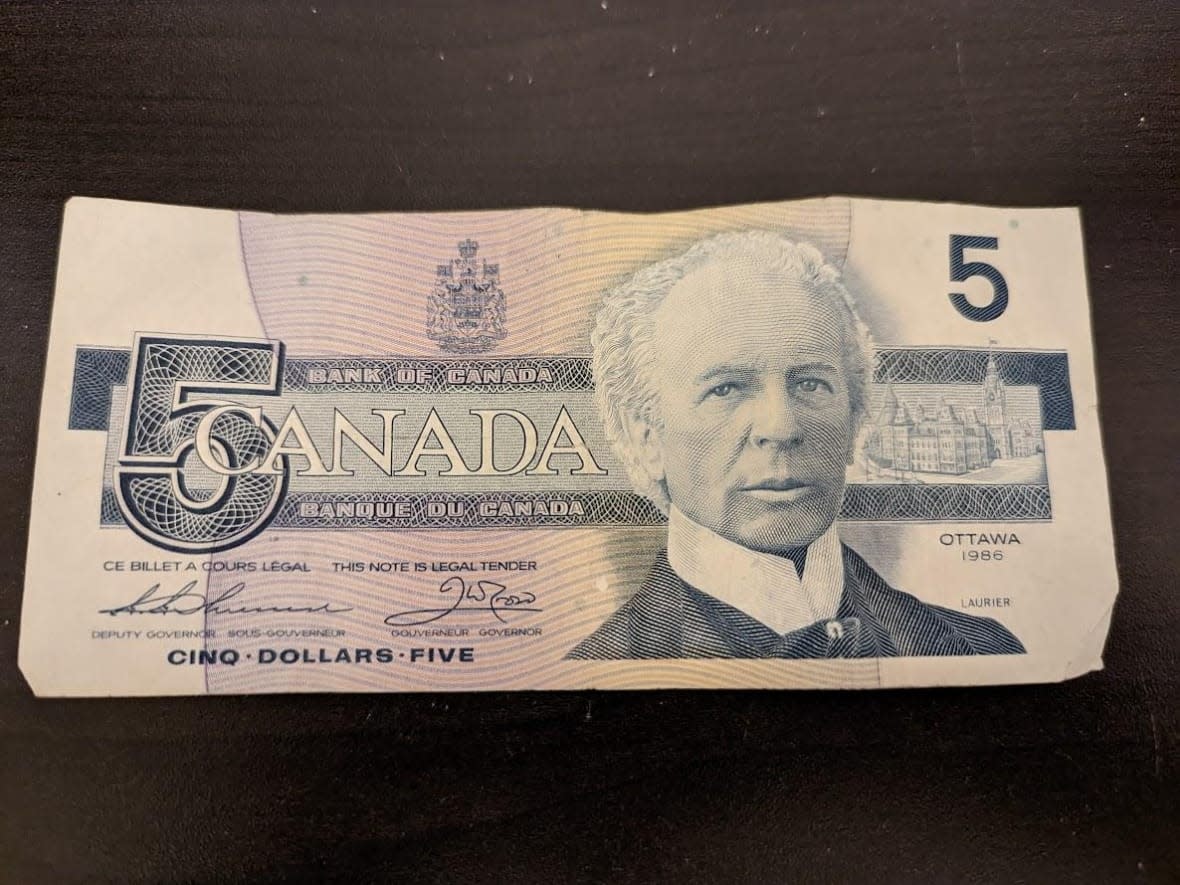Sudbury, Ont., woman surprised coffee shop rejected her 36-year-old $5 bill

A Sudbury, Ont., woman was surprised when staff at a coffee shop refused to accept her payment with an old $5 bill.
Irene Nizzero tried to buy a beverage with a bill printed in 1986, long before the current polymer bank notes were introduced in 2011.
Nizzero said the young person working at the cash register didn't recognize the older bank note, so called over a colleague to inspect the bill.
"He was just as leery," Nizzero said.
"And so yeah, I ended up just paying with a 20. But I tried to reassure them that no, this is honestly, real money."
To confirm her older $5 bill was still valid, Nizzero said she returned to the coffee shop the next day and showed it to a manager.
"I thought, 'OK, well maybe, you know, maybe I was wrong in trying to present this bill,'" Nizzero said.
She said the manager confirmed they should have accepted the bill.
Merchants can refuse bank notes, central bank says
In an email to CBC News, Bank of Canada spokesperson Amélie Ferron-Craig said it's up to the seller to determine what payment methods they want to accept.
"So yes, a merchant can refuse to accept bank notes, or even certain denominations of bank notes, as a method of payment for goods or services," Ferron-Craig said.
In the email, Ferron-Craig added that bills from 1986 had security measures in place, such as raised ink and green dots, to help prevent counterfeiting.
Ferron-Craig said all older bank notes retain their value and can be exchanged for newer bills at any bank.
In the meantime, Nizzero said, she doesn't blame the young workers for being cautious.
"I had to really rethink my position and I think that's something that others might want to consider too," she said.
"We're now spanning enough generations that some people would not necessarily have seen this bill before, and there may be some resistance. I think it's also quite possibly a reflection of how much plastic and virtual payment have become popular."


